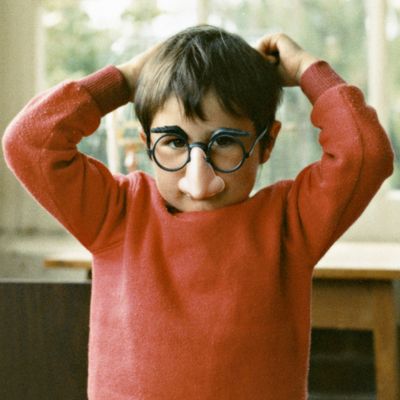
Here is a very on-brand childhood story of mine: One of the few times I got in trouble as a kid, my parents didn’t send me to my room; instead, they took away the book I was reading. My punishment was having to go play outside.
Twitter, as you may have noticed, has been full of similar stories over the past week, people sharing childhood anecdotes that fit with who they are as adults:
The appeal of this particular meme is easy to understand — it’s fun to think about your past self that way, to imagine that a kernel of your adult self was always incubating inside a child’s body, slowly growing over time into a full-fledged personality.
And, in a way, it was. “As soon as we emerge into the world — in fact, probably even before that — our personalities start to develop,” psychology writer Christian Jarrett, author of the forthcoming book Personology: Using the Science of Personality Change to Your Advantage, said in an email.
“Psychologists don’t call it personality that early in life; they call it temperament,” he added. “But still, things like how much you were prone to crying and smiling, how much you kept focused on one thing at a time, how much you rolled and kicked about or tried to touch that cuddly toy that was just out of reach — all these things were early manifestations of your developing personality.”
Researchers have been able to trace a through line from those earliest actions to what we’re like later in childhood, suggesting that to a certain extent, the temperament we exhibit in our earliest days is a pretty good indicator of who we’ll become. In one 2016 study, for example, parents rated several different measures of their children’s temperaments when they were under a year old, and then did the same with their personalities when they were around 8. Overall, the two reports tended to show some consistency, with babies demonstrating proto-versions of the traits they would later show as elementary schoolers; smiley babies, for instance, were less neurotic kids, while babies higher in something called “regulatory capacity” (measured by things like attention span and ability to manage emotions) later became more conscientious.
And other research has shown that the same consistency holds as we progress from kid to adult. A 2007 study in the journal Personality and Individual Differences followed 83 people who had previously participated in research on childhood psychological development; as kids, they had been examined at seven different points between the ages of 6 months and 3 years old, and then once each year between the ages of 4 and 18.
In this new study, which took place 40 years later, the participants filled out a series of personality questionnaires, which the researchers then compared to the older data, focusing on the relationship between “disinhibition” (the opposite of inhibition, it’s a temperamental trait linked to assertiveness and activeness) and its personality equivalent, extraversion. There was, they found, a relationship between the two: Going back to toddlerhood, those who were higher in disinhibition turned into more outgoing adults.
That’s not to say that your entire personality is set by the time you can walk; it shows up early, yes, but it’s not some stuck, unchangeable thing. “It’s worth remembering the growing realization among psychologists that, while there is usually a clear thread of continuity in who we are,” Jarrett wrote, “personality is not fixed once we become adults, but continues to develop right through our lives.” You’re not stuck with yourself, if that’s not who you want to be. If, on the other hand, you’re content to go through life as an indoor kid — well, for some of us, that’s worked out just fine, thank you very much.




